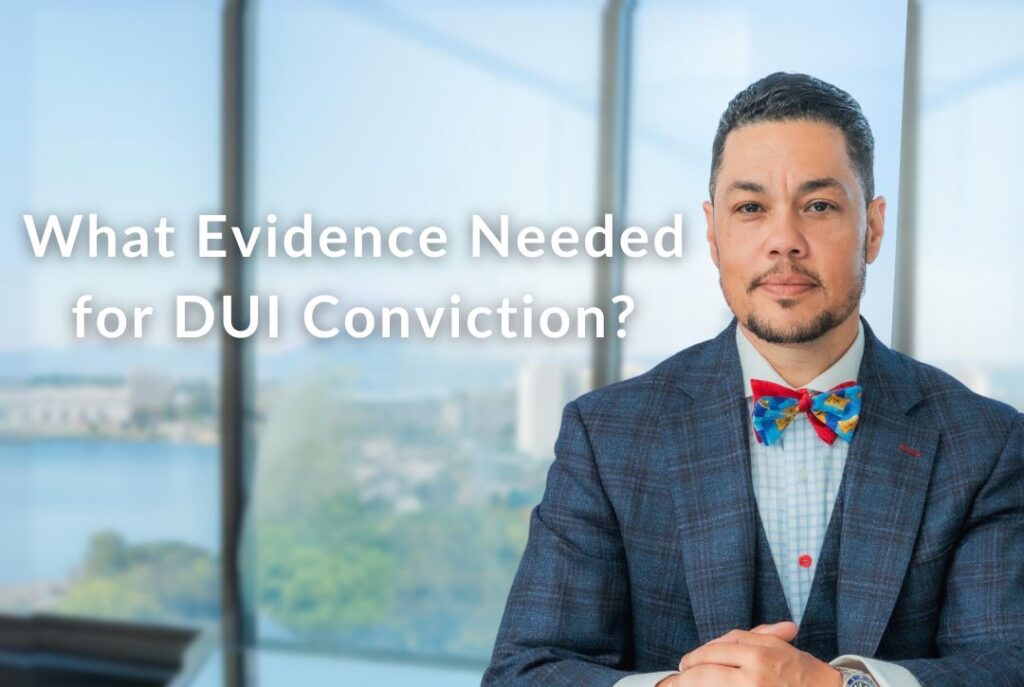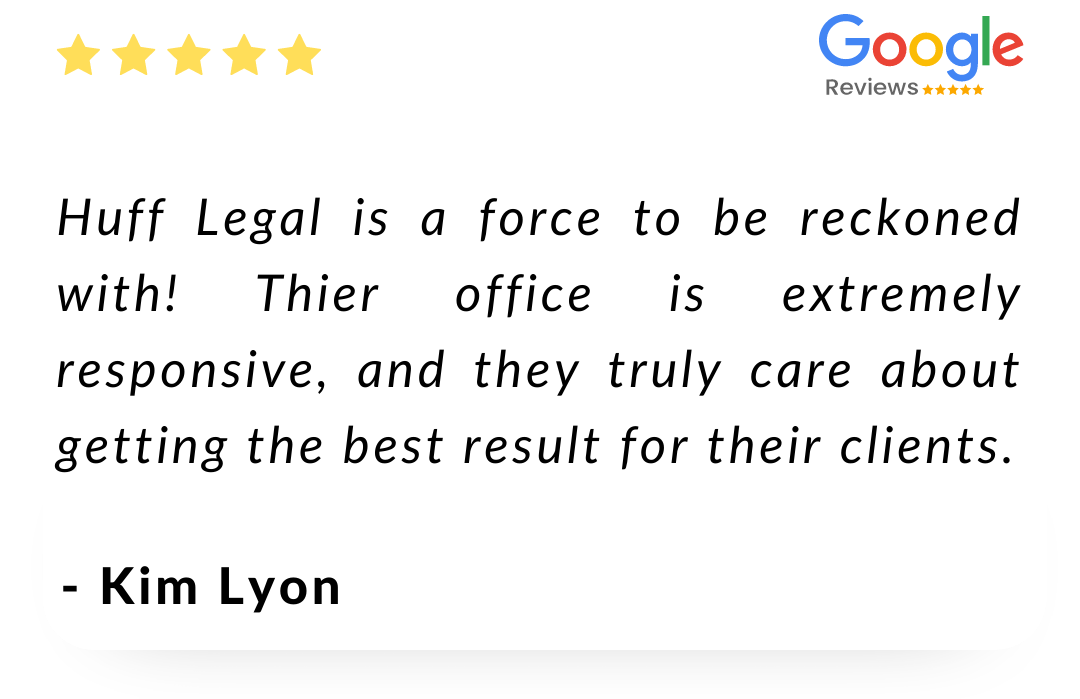What Evidence Needed for DUI Conviction?
What Evidence Needed for DUI Conviction?
In California, a DUI conviction requires specific evidence to prove guilt. In 2023 alone, over 200,000 DUI-related crashes led to more than 280,000 injuries and 4,000 deaths.
To convict, prosecutors rely on evidence like blood alcohol content (BAC), field sobriety tests, and police reports. Without solid proof, your case may be weak.
This article explains the evidence needed for a DUI conviction and how it impacts your defense. Understanding the process can help you navigate your case effectively.
Evidence Initially Gathered When The Police Stop You
When the police stop you for suspected DUI, they gather evidence immediately. They observe your driving for signs like:
- Swerving between lanes
- Driving too fast or too slow
- Not signaling or turning on headlights
- Tailgating or running stop signs
After pulling you over, the officer may ask if you’ve been drinking or using drugs. You don’t have to answer. The officer might also request field sobriety tests or a preliminary breath test—both of which are voluntary. The officer’s observations and your actions at this point are critical evidence for the prosecution.
Signs That a DUI Case Is Weak
Certain factors can weaken a DUI case. These include:
- Inconsistent reports: The case may lose credibility if the officer’s statements don’t match the evidence.
- No probable cause: If you were stopped without a valid reason, the evidence could be thrown out.
- Improper testing: If field sobriety tests were administered incorrectly, they may not be reliable in court.
If any of these apply, your lawyer can challenge the evidence and possibly get charges reduced or dismissed.
Request a Free Consultation
Key Evidence in DUI Convictions
A DUI conviction relies on two key things: proving you were driving and proving you were intoxicated.
Proving You Were the Driver
To secure a DUI conviction, the prosecution must prove you were driving or in control of the vehicle. This can be shown through:
- Eyewitness testimony: Witnesses or the arresting officer can testify that they saw you behind the wheel.
- Physical evidence: Things like the position of the keys, whether the engine was running, and where the vehicle was stopped can also support this claim.
If there is doubt about whether you were driving, it may weaken the prosecution’s case.
Proving You Were Legally Intoxicated
The cornerstone of most DUI cases is Blood Alcohol Content (BAC). To prove intoxication, the prosecution will rely on:
- Breathalyzer results: If your BAC is 0.08% or higher, it’s considered strong evidence of impairment.
- Blood test results: While taking longer to process, blood tests are also commonly used to prove intoxication.
- Field sobriety tests: Results from these voluntary tests, like walking in a straight line or standing on one leg, may also be used.
Each piece of evidence helps the prosecution build its case against you but can also be challenged.
Evidence the Prosecution Will Attempt to Use Against You
The prosecution in a DUI case will use several types of evidence to try and convict you. The most common forms of evidence include:
- Officer observations: The officer’s testimony about your behavior, appearance, and driving can be used to establish impairment.
- Field sobriety test results: Even though these tests are subjective, the results can still be used to suggest intoxication.
- Breath or blood test results: These are often the strongest evidence. It can be hard to dispute if your BAC is above the legal limit.
- Dashcam or bodycam footage: Video evidence of the traffic stop, your behavior, and your interactions with the officer can be critical for both the prosecution and your defense.
How a DUI Lawyer Fights the Evidence Against You
A DUI lawyer’s job is to challenge the evidence against you and protect your rights. From the moment you’re stopped, the police gather evidence, but not all of it may hold up in court. A skilled DUI lawyer will look for weaknesses in the prosecution’s case and attack the evidence on several fronts:
- Questioning probable cause: If the officer didn’t have a valid reason to pull you over, any evidence gathered after the stop could be dismissed.
- Challenging the accuracy of tests: Breathalyzers and blood tests aren’t always accurate. Your lawyer may argue that the equipment was faulty, improperly calibrated, or that the testing was done incorrectly.
- Examining officer conduct: If the arresting officer didn’t follow proper procedures, such as reading you your rights or conducting field sobriety tests correctly, that evidence could be thrown out.
- Cross-examining witnesses: Your lawyer can question the credibility of witnesses, including the arresting officer, to find inconsistencies or errors in their statements.
A DUI lawyer knows how to analyze the details of your case and create a defense strategy to give you the best chance of reducing or dismissing your charges.
What Is a DUI Conviction?
A DUI conviction happens when you’re found guilty of driving under the influence of alcohol or drugs. It’s not just about getting pulled over or arrested—it’s about proving in court that you were impaired and breaking the law. The conviction can lead to serious consequences, including fines, license suspension, probation, and jail time.
The severity of the penalties depends on factors like your BAC level, prior convictions, and whether any accidents or injuries occurred. A conviction will go on your permanent record, which could affect future job prospects, insurance rates, and more.

As Seen On












Challenging the Admissibility of Evidence in a DUI Case
Not all evidence collected by law enforcement is automatically allowed in court. Your lawyer will look at how the evidence was gathered and argue for certain pieces to be excluded. Here are a few ways this happens:
- Illegal stop or search: If the officer didn’t have reasonable suspicion or probable cause to stop your vehicle, any evidence obtained afterward might be inadmissible.
- Faulty testing methods: If the breathalyzer or blood test equipment was not calibrated correctly or wasn’t administered according to protocol, the results may not be reliable.
- Chain of custody issues: If there’s a gap in the documentation showing how evidence was handled from the scene to the lab, that evidence could be considered tainted and unusable in court.
- Violation of rights: If your rights were violated during the arrest, such as not being read your Miranda rights, any statements or confessions you made could be thrown out.
A successful challenge to evidence could result in reduced charges or even a dismissal of your case, making it a critical part of your defense strategy.
Related Frequently Asked Questions
What is the best defense against a DUI?
The best defense depends on the details of your case. Common defenses include:
- Questioning the legality of the stop.
- Challenging the accuracy of the BAC test.
- Arguing that your rights were violated.
A skilled DUI lawyer will analyze your case and create a tailored defense strategy.
What are the elements of a DUI in California?
To prove a DUI in California, the prosecution must show you were driving and that you were impaired by alcohol or drugs. They typically rely on evidence like BAC results and the officer’s observations. The key is proving your ability to drive was impaired.
What happens when you get a DUI for the first time in California?
A first-time DUI in California is usually a misdemeanor. Penalties can include fines, probation, license suspension, and a mandatory DUI education program. Jail time is possible, but many first-time offenders receive probation instead.
What are the new DUI laws in California in 2024?
In 2024, California continues its focus on harsher penalties for repeat offenders and stricter enforcement of BAC limits. Enhanced penalties now apply to drivers with particularly high BAC levels and commercial drivers. Updates also include expanded use of Ignition Interlock Devices (IIDs) for certain offenders.
What Clients Say About Us





Schedule Your Free Consultation Today
Call Us for Experienced DUI Defense
Navigating a DUI charge can be stressful, but understanding the evidence and legal options can make a big difference in your case. At Huff Legal, we provide experienced guidance to help you get the best possible outcome.
Call us today to discuss your case and explore your defense options. Our team is here to answer your questions, review the evidence, and build a strong defense tailored to your situation.
LET HUFF HELP YOU
As a former police officer and patrol supervisor and his time spent as a United States District Court Judicial Law Clerk to the Chief Judge, Attorney Huff knows how to navigate all levels of the complex criminal law system. We also have more than 55 years of combined experience dealing with various complex criminal legal matters and have helped just over 1,500 clients over the past few years.
Why Huff Is Your Best Option For Criminal Defense
55+ Years of Combined Experience
At Huff Legal, we have more than 55 years of combined experience dealing with complex criminal legal matters, which can oftentimes be quite challenging. In order to get the outcome you deserve, you need a team of experienced attorneys on your side, who can help you navigate the legal system, so you can move past this situation and focus on the life ahead of you!
5 Star Rating on Google
We have a proven track record of success and are dedicated to our clients’ best interests. If you’re looking for a law firm that will always have your back, look no further than Huff Legal. Just have a look at some of our amazing client reviews over here!
1,500+ Happy Clients
Over the years, we’ve had the privilege of helping over 1,500 clients with their legal needs. When you work with us, you can be confident that you’re getting the best possible legal representation. We’re proud of our track record and our reputation for being a firm that delivers great results.
What Our Clients Say About Us


Sheila


Abel Resendiz


Manuela Frazier


Doris
Contact Huff Today
Request A Free Consultation
* Free consultations only available for Criminal Defense


In legal terms, an accessory to murder refers to an individual who aids, abets, or otherwise assists in committing a murder. While the specifics may vary across jurisdictions, California law treats accessories to murder as active participants in the crime, holding them accountable for their actions. In San Francisco Bay Area, there are two primary types of accessories to murder:
In the event that you find yourself in the Bay Area facing accessory to murder charges, you should first call a criminal defense attorney who can help you defend your rights and lessen the effects of the investigation. Contact an attorney at Huff Legal as soon as possible following your arrest. An accomplished attorney from Huff Legal will thoroughly examine your case, who will then develop a strategy and build a defense.
